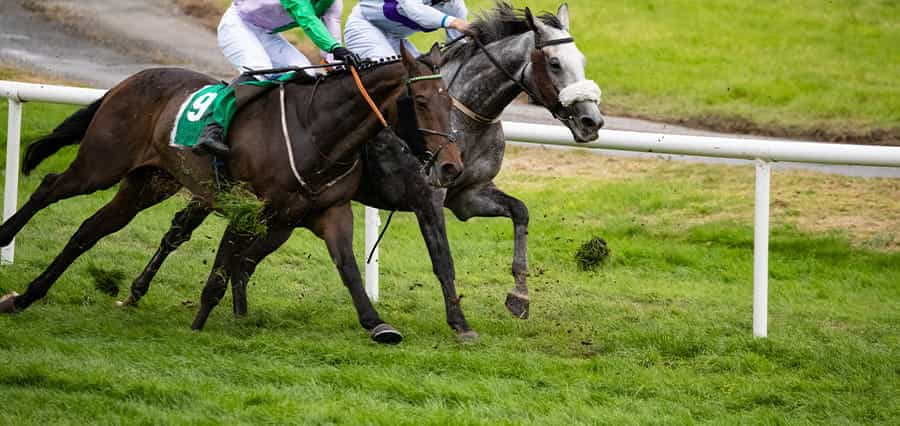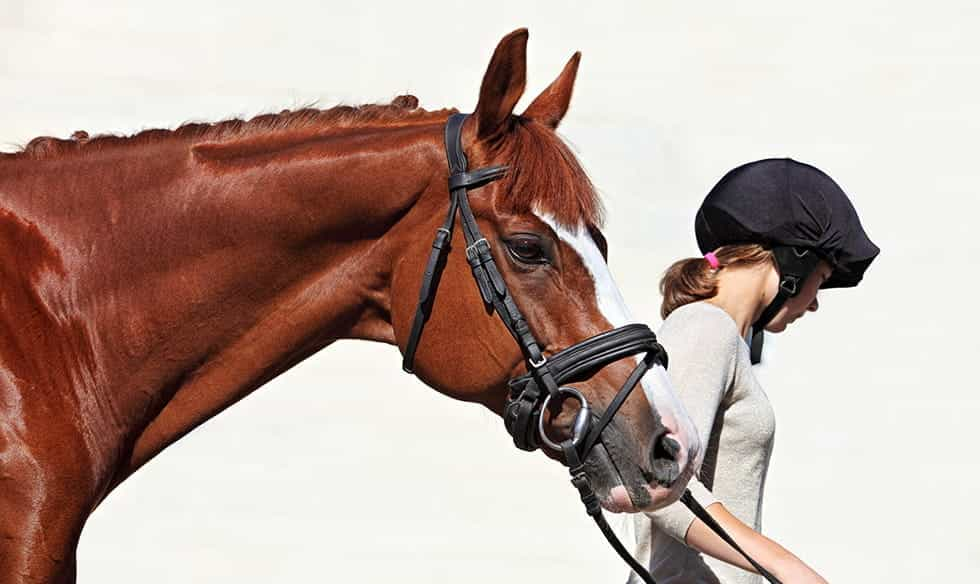
A Glossary of Horse Racing Terms
Consider this a list of horse racing terms for dummies, as we go through both general and specific horse racing and betting terminology that you might encounter in a day at the racetrack or when betting at the best horse racing betting sites online.
- Abandoned – When a race meeting has to be cancelled due to bad weather, or the fact that a participating club did not receive enough nominations.
- Acceptor – A runner slated to run and participate in a race.
- Accumulator – A multi-bet on a horse race, where the winnings of one bet in the accumulator get placed on the next bet. In an accumulator, all bets must win to receive any winnings.
- Across the board – Three bets in one. A bet on a horse to show, place or win.
- Allowances – Reductions in weight allowed to be carried by horses who are at a disadvantage, such as a female running against males, or an apprentice jockey among pros.
- Also ran – Any horse who did not come first, second or third
- Backed – A backed horse is one that has had many bets placed on it.
- Backstretch – The straight part of the racetrack opposite the stable area, or finish line.
- Bailed up – A runner racing on the inside, jostling other runners for clear room to gallop
- Banker – The bet that is the strongest in a multi-bet such as an accumulator
- Barriers – Also known as the ‘stalls’, these are the starting gates where the horses burst out of to begin the race.
- Birdcage – This is the area of the racetrack where the horses are paraded out before the race. Sometimes associated with a more prestigious ticket.
- Bit – A piece of equipment that sits in the horse’s mouth and is attached to the bridle. Usually made of stainless steel.
- Blinkers – These are equipment or headgear placed on a horse to obscure the periphery of its vision, allowing it to focus straight ahead and not be distracted.
- Broodmare – A mare (female) thoroughbred horse that is used for breeding.
- Bridle – A piece of equipment that fits over the horses head, that the bit and reins are attached to.
- Caulk – A projection on the base of a horses foot to give it more traction.
- Checked – Refers to the interference caused by a horse during a race.
- Closer – A horse that runs better in the later part of the race than the beginning
- Colt – A male horse, usually below the age of four years.
- Daily double – A wager where a bettor picks the winner for two sequential races
- Dam – The mother of a horse
- Dark – A day on the racetrack when there is no live racing.
- Dead heat – A race that finishes in a tie.
- Derby – A competition race of high classification for three year old horses
- Dividend – The amount that a winner or a placed horse returns for every $1 invested by the bettor.
- Draw – The horses starting position in the stalls, which is drawn at random.
- Exacta – A wager that requires the pick of the first two finishers, in the exact order they finished in.
- Exposure – The sum of money that one is at risk of losing on a race
- False favorite – A race favorite that is outrun by other underdogs.
- Field – Refers to all the runners in a race.
- Filly – A young female horse, four years old or younger.
- Fixed odds – Refers to the dividend being fixed at the time of making a bet.
- Furlong – An eighth of a mile.
- Gelding – A male horse that has been castrated.
- Graded race – A stakes race that has been assigned a grade, either I, II or III. It is the highest form of racing.
- Handicap – The weights that are added to an adept runner to equalize the playing field.
- Handle – The total sum that has been bet on a race in the duration of the day.
- Horse – Formally, a male horse older than five years is a ‘horse’.
- In hand – A horse running under mild restraint.
- Juvenile – A two-year old horse.
- Lug in – A horse that turns in towards the railing during a lengthy stretch run.
- Mare – A female horse five years or older.
- Middle distance – A race that is longer than seven furlongs but shorter than 1 ⅛ miles.
- Marathon – A race that is longer than 1 ¼ miles.
- Oaks – A stakes race for three year old fillies.
- Odds – The chances of a horse winning a race based upon the pari-mutuel bets of the betting public.
- Off the board – A horse that fails to accumulate enough bets to bring it’s odds within 99:1.
- Off the pace – A horse that is lagging a little in the beginning of a race.
- Overlay – A horse who’s odds are higher than its real chance of winning. The real chance, or real odds, are determined by the player. Overlays pay out more than they should, so you should identify them when you can.
- Pace – The speed of the leading runners in a race
- Pari-mutuels – The system of betting where the winning bettors win all the money bet by the losers, following a deduction by the house.-
- Post – Another name for the starting gate.
- Scratch – Referring to when a horse is withdrawn from the race.
- Sprint – A race of seven furlongs or less.
- Stewards – Officials who determine whether there have been any violations on the track.
- Superfecta – A wager where the bettor wages on the first four finishes in a race.
- Trifecta – A wager where the bettor wages on the first three finishes in a race.
- Under wraps – A horse where the rider is consciously keeping it from running at full speed.
Frequently Asked Questions
We’ve only scratched the surface of the immense sea of horse racing terms that can be found out there. There are many commonly asked questions that beg to be answered surrounding horse racing terminology, and we’ve collated the best of them for you below, just like our other fantastic guides on the gambling community.
What do they say at the start of a horse race?
The common expression that you might hear at the start of a horse race is the iconic ”and they’re off”, referring to the leap that the horses do at the gunshot out of their starting gates. You can even hear this in virtual horse races, which you can bet on.
What does C and D mean in horse racing?
You might see the letters C and D listed next to a horse's name in a form list at any race. The letter C means that they have won previously at that racetrack, while D refers to the fact that they have won at that length. As with most sports, you will find that there are lots of terms to learn in horse racing.
What is the bugle call before a horse race?
The bugle call at the beginning of a horse race is the sound that signals all horses to be prepared to proceed to the track. It is actually a military ‘first call’ sound that originated in the horse racing context in the 1860s. It can be surprising, but tradition is still a huge part of many sports; these are then combined with modern technology in the best online sports betting sites.



